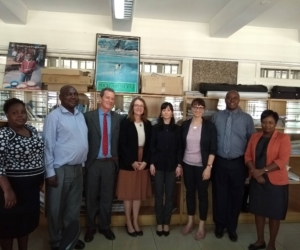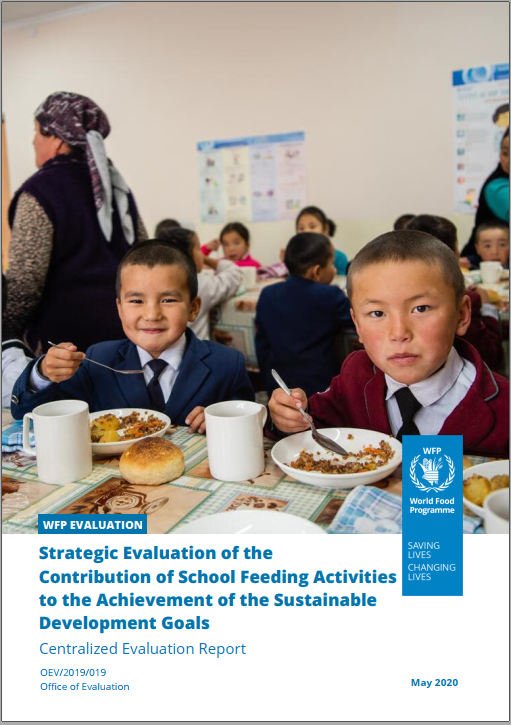School Feeding Contribution to the Sustainable Development Goals
A Strategic Evaluation
2021
WFP, Global
This global strategic evaluation was conducted by a Mokoro evaluation team, led by Dr Muriel Visser. The evaluation reviewed WFP’s strategic positioning in school feeding, its contribution to the achieving the Sustainable Development Goals (SDG), and its performance against the 2013 School Feeding Policy between 2014 and 2020. It assessed how well WFP is positioned and equipped for delivery of its school feeding agenda and sought to understand what factors are enabling or hindering progress. The evaluation team paid particular attention to WFP’s organisational readiness to implement the 2020-2030 school feeding strategy. The evaluation included a specific feature on the adaptation of school feeding programmes in light of the response to the Covid-19 pandemic.
The evaluation design was theory-based and guided by a reconstituted theory of change and by a framework of Organisational Readiness which was developed during the inception phase based on a literature review and consultations with the client.
All primary data collection was conducted remotely following adjustments made in light of the Covid-19 pandemic. The evaluation combined a rigorous review of secondary evidence with the collection of primary source data across different country contexts where WFP has been operating, and at different levels (country, regional, global). The primary evidence included 11 country studies (Cambodia, Côte d’Ivoire, Haiti, Kenya, Mozambique, Namibia, Peru, Rwanda, Tunisia, Syria, and Tajikistan), as well as an e- survey of WFP staff, which focused on Organisational Readiness, using closed and open responses.
Engagement with relevant stakeholders was sought throughout the evaluation process, with adaptation to the necessity of on-line meetings. Feedback sessions took place with WFP offices in the country case studies, as well as regional bureaux. In January 2021 a learning workshop provided a further opportunity for stakeholder input, particularly to discuss findings, conclusions, recommendations, and management responses.
The Mokoro team produced a final evaluation report, as well as a summary evaluation report, including eight recommendations focusing on key dimensions of organisational readiness.







